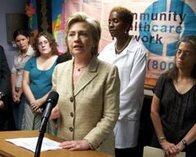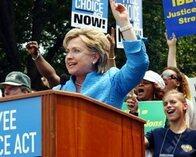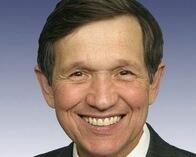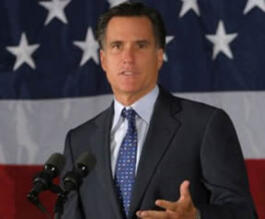The Contest For the Republican Presidential Nomination - by Douglas Schoen
Recent Rasmussen polling provides important insights into why Fred Thompson has a real chance to win the Republican nomination for President.

Recent Rasmussen polling provides important insights into why Fred Thompson has a real chance to win the Republican nomination for President.

A Rasmussen Reports telephone survey in New Hampshire finds that former Governor Jeanne Shaheen (D) leads incumbent Senator John Sununu (R) 48% to 43%.

Senator Hillary Clinton continues to hold a huge lead in the New Hampshire Presidential Primary.

Former New York City Mayor Rudy Giuliani has pulled to within three points of former Massachusetts Governor Mitt Romney in the New Hampshire Presidential Primary.

The seven leading Presidential candidates all have more people committed to voting against them than for them.

It’s getting fairly boring to talk about the raw national numbers in the race for the Democratic Presidential nomination.

More than anything else, Fred Thompson’s bounce in the polls last week highlights the extremely fluid nature of the race for the Republican Presidential nomination.

The Emmy winners have officially been announced. Despite a couple of surprise winners from last night’s ceremony, TV fans were right on target for their choice for best actress in a comedy and a drama.

A detailed examination of recent Rasmussen polling on General Petraeus's testimony shows that there is likely to be little short term or long term impact from his report and recommendations to Congress.

Forty percent (40%) of U.S. voters say that Congress should support the policy outlined in President Bush’s address to the nation last Thursday night.

President Bush earns his best grades from voters on the issues of handling the economy and taxes--36% say he is doing a good or an excellent job on each issue.

Google (GOOG) is offering prizes totaling $30 million for a private company that can land a vehicle on the moon and transmit video back to earth within five years.

Democratic Senator Hillary Clinton nominally leads Republican Senator John McCain 46% to 45% in the latest Rasmussen Reports national telephone survey.

For the first time in months, Thompson has moved ahead of Giuliani and McCain has moved ahead of Romney in the race for the Republican Presidential nomination.

Senator Hillary Clinton and former Mayor Rudy Giuliani remain virtually tied in a hypothetical Election 2008 match-up.

Democratic voters continue to see very little ideological difference between Hillary Clinton and Barack Obama.

Republican voters continue to see Fred Thompson as the most politically conservative candidate in the GOP Presidential field.

A new Rasmussen Reports Election 2008 survey finds maverick Democratic Congressman Dennis Kucinich lagging in match-ups with top GOP presidential candidates.

It is hard not to see the Republicans as largely dispirited judging by the results of a recent Rasmussen Reports poll.

Forty-three percent (43%) of Americans favor the recommendation made by General David Petraeus to withdraw 30,000 soldiers from Iraq but leave 130,000 troops in place at least through the summer.